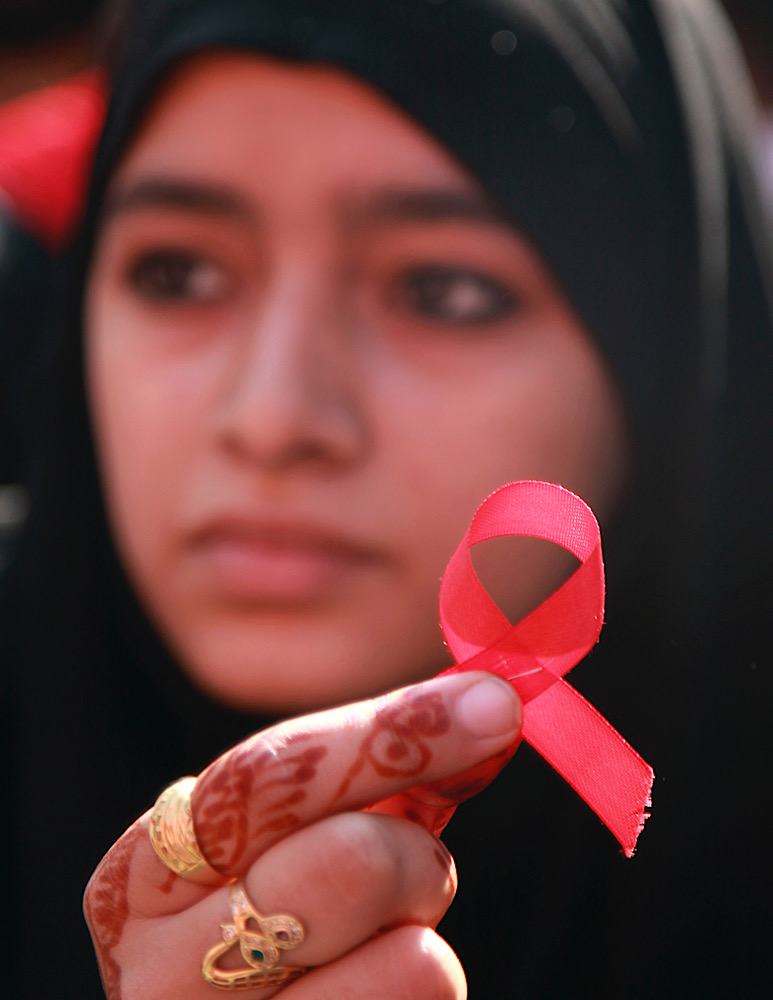MENA: Aids cases rise 116 per cent since 2010 because of wars and displacements
According to a study by Frontline AIDS, while the disease saw a 39 per cent overall drop in the past 15 years, the epidemic is escalating in the Middle East and North Africa, with a record 609 per cent jump in Egypt. Marginalised groups, in particular homosexuals, sex workers and drug addicts, are at great risk.
Beirut (AsiaNews) – Wars and internal conflicts, economic crises, forced displacement and lack of funds have caused an “escalating HIV epidemic” in the Middle East and North Africa (MENA) since 2010, with a 116 per cent increase in cases compared to an overall 39 per cent decline worldwide in infections in the same period, this according to a report titled Prevention and Accountability Report for the Middle East and North Africa.
The study, which is focused on prevention methods and strategic responses, was released by Frontline Aids (formerly known as the International HIV/AIDS Alliance, IHAA), a global partnership of governmental and non-governmental organisations set up in 1993 to raise awareness about the disease and promote treatment, particularly in developing countries.
The study found that the number of cases in Egypt, Jordan, Lebanon, Morocco, and Tunisia have jumped significantly; Egypt, for example, saw a 609 per cent rise since 2010.
The upward trend occurred against a backdrop of regional instability, including ongoing conflicts, forced displacement, and humanitarian crises that undermine governments and public health initiatives, damage infrastructure, and disrupt health services.
Marginalised groups, such as homosexuals, transgender people, sex workers, drug addicts and prisoners, are among the most vulnerable and prone to infection, compounded by social stigma and restrictive laws that prevent access to HIV prevention services and treatment.
In 2023, at least 22,962 cases of HIV were reported in MENA, compared to less than 11,000 in 2010. In terms of age, almost 20 per cent touch young people between 15 and 24.
According to UNICEF, in 2022 only 67 per cent of people with HIV aged 15 and over knew they were infected, while 50 per cent were receiving treatment and 45 per cent were able to reduce their viral loads to levels that no longer pose a threat to their health.
Frontline AIDS’s report found that the surge is further compounded by funding shortfalls, with MENA receiving just 1 per cent of global HIV funding in 2023. In addition, local health workers are forced to operate with just 15 per cent of the funds needed for an effective response to the rising number of HIV cases.
With a 85 per cent funding gap, along with economic instability and rising inflation, efforts to tackle the disease and reduce infections have been severely hampered.
While emphasising the importance of civil society organisations (CSOs) in tackling HIV, the study found that a shrinking civic space, restrictive laws, and scarce resources in the region are major obstacles in ensuring an effective response.
The region “is being left behind,” laments Golda Eid, programmes lead at Frontline AIDS. She warns that, in the absence of urgent action and investment, the epidemic could escalate “at an unprecedented rate.”
Nevertheless, “Across the region, organisations are already driving change, often with limited resources. With stronger political leadership, increased funding, and a commitment to tackling stigma and discrimination, we can turn the tide. There is still an opportunity to save lives and build a future free from AIDS in the region, but the time to act is now,” Eid said in a statement.
Mohammed El Khammas, head of international actions at Frontline, warns that the numbers cited in the report are likely an underestimate.
“The 116 per cent increase is linked to very limited testing coverage, and the size of the key affected population is not well known, which significantly reduces its coverage,” he explains.
What is more, “these populations suffer from stigma and discrimination. I am convinced that this percentage will be even more alarming in the coming years if the number of HIV tests increases,” he said.
The report calls for an urgent increase in investment in HIV prevention by governments in the region and by international donors, which contrasts with global aid cuts by the US administration led by President Donald Trump.
Last but not least, the report calls on national governments to adopt strategies and measures to tackle stigma and discrimination.







.png)










